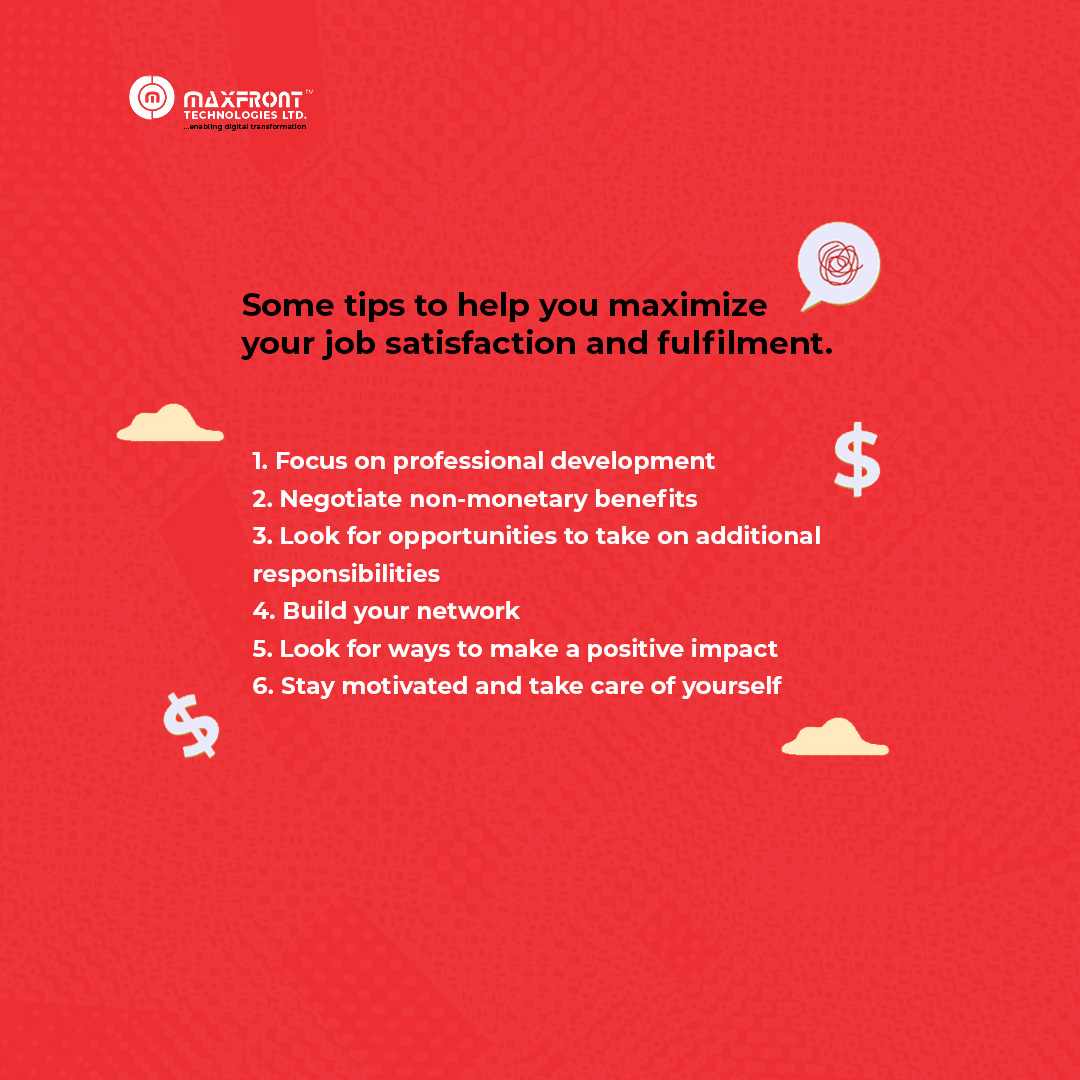Are you tired of waiting for a pay raise that may never come? Do you want to learn how to survive and even thrive in your current job without relying on a salary increase? Look no further than our latest blog post, “Surviving and Thriving When a Pay Raise is Off the Table.”
This informative and practical article provides actionable tips and strategies for boosting your value at work, negotiating for non-salary benefits, and developing new skills that can lead to career advancement.

Don’t let a lack of pay raise bring you down. Take control of your career today by reading our blog post and implementing our suggested strategies. With our expert advice, you can survive and thrive in your current job, no matter the circumstances. Get on now and read “Surviving and Thriving When a Pay Raise is Off the Table.”
As an employee, it can be disheartening to realize that a pay raise is not on the table. You are frustrated because you feel you deserve a pay raise but can’t get one. Your company may be facing financial challenges, or you are still building your experience level. Whatever the reason, not getting the pay increase you hoped for can be frustrating, and a higher salary is undoubtedly one way to feel valued and appreciated at work. It is essential to remember that there are other ways to survive and thrive in your career even if you can’t get a pay raise. In fact, you can do many different things to get more out of your job, even if a pay raise isn’t on the horizon.
In this blog post, we’ll explore some tips to help you maximize your job satisfaction and fulfillment.

1. Focus on professional development:
Just because you can’t get a pay raise doesn’t mean you can’t improve your skills and knowledge. Focus on professional development opportunities such as attending conferences, taking courses, or participating in online training. Developing your skills and expertise will make you more valuable to your employer and position you for future promotions.
One of the best ways to feel fulfilled in your job is to continually challenge yourself and learn new things. Ask your supervisor about opportunities for professional development, such as attending conferences, taking courses, or participating in job shadowing or mentoring programs. These experiences help you acquire new skills and knowledge and demonstrate to your employer that you are committed to growing and improving as an employee.
2. Negotiate non-monetary benefits:
While a pay raise may be off the table, there may be other benefits that you can negotiate with your employer. For example, ask for more flexible working hours, additional vacation days, or the option to work from home a few days a week. These benefits can help to improve your work-life balance and make your overall compensation package more attractive.
3. Look for opportunities to take on additional responsibilities:
If you can’t get a pay raise, you can still look for opportunities to take on additional responsibilities. Doing so will demonstrate your value to your employer and position yourself for future promotions. If you’re feeling stagnant in your current role, look for opportunities to take on new responsibilities. Taking on new challenges can help you develop new skills and feel more engaged in your work. Talk to your manager about new projects or responsibilities that align with your skills and interests.
4. Build your network:
Building a solid professional network can be invaluable in your career. Attend industry events, join professional organizations, and connect with colleagues on LinkedIn. Building relationships with others in your industry may uncover new opportunities for career advancement or even a new job that pays better.
The people you work with can significantly impact your job satisfaction. Make an effort to build positive relationships with your colleagues by being friendly, supportive, and collaborative. Having good relationships with coworkers makes you more likely to enjoy your work and feel motivated to do your best.
5. Look for ways to make a positive impact.
Even if you’re not in a leadership position, you can still positively impact your workplace. Look for opportunities to volunteer for committees or projects that align with your values and interests. Also, consider participating in your company’s community outreach or volunteering programs. You’re more likely to feel fulfilled in your job when you feel like you’re making a difference.
6. Stay motivated and take care of yourself:
Finally, remember to take care of yourself outside of work, making time for hobbies and activities that bring joy and prioritizing physical and mental health. When you’re feeling your best, you’re more likely to bring your best self to work. It’s easy to become discouraged when you can’t get a pay raise. Still, staying positive and motivated is important; focus on what you enjoy about your job and look for opportunities to learn and grow. This will help you take advantage of future opportunities.
In conclusion, not getting a pay raise can be challenging, but it doesn’t have to be the end of your career growth. A pay raise is undoubtedly one way to feel valued at work; there are many other things you can do to get more out of your job, Professional development, Negotiating non-monetary benefits, Seeking out opportunities for growth and development, Building your network and positive relationships with colleagues, Take on new responsibilities, Look for ways to make a positive impact and Take care of yourself. By focusing on these areas, you can find fulfillment and satisfaction in your work and continue to thrive in your career, even without a pay raise.
So, if you need help making progress in your career when a pay raise is not an option, take action today to learn how to survive and thrive in these challenging times. Start by focusing on what you can control, such as developing new skills, seeking mentorship or networking opportunities, and taking on additional responsibilities. Also, consider seeking feedback from your colleagues and supervisor to identify improvement areas and growth opportunities. Taking proactive steps to invest in yourself and your career can position you for long-term success and help you achieve your goals, even when a pay raise is off the table. Don’t wait – start taking action today!